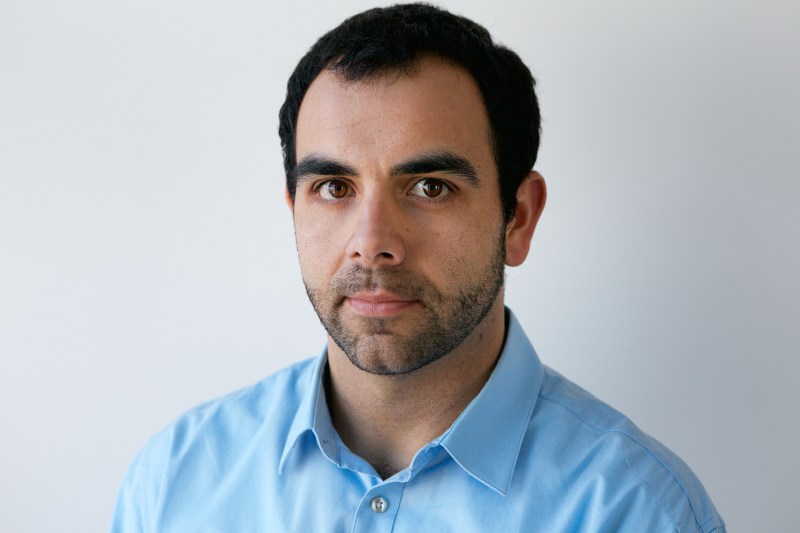On November 5, Israel’s Supreme Court ruled its government could expel the Human Rights Watch (HRW) Israel and Palestine Director, Omar Shakir, under the nation’s anti-Boycott, Divestment, and Sanctions (BDS) legislation. The unanimous decision by a three-judge panel upholds the District Court of Jerusalem’s April opinion and is likely to end legal proceedings that have drawn out for more than a year. Should Israel’s caretaker government decide to enforce the deportation order, Shakir would have until November 25 to leave the country.
Shakir’s work visa was revoked last year under a 2017 amendment to Israel’s Law of Entry that permits the Israeli government to ban foreigners supportive of the BDS movement. While Shakir ’07 J.D. ’13, would be the first to be removed from the country under this amendment after being lawfully admitted, an increasing number of people have been denied entry into Israel under the law. Most famously, Israel barred U.S. Representatives Ilhan Omar and Rashida Tlaib from visiting in August — with encouragement from President Trump.
Critics decried the court’s decision for its potential chilling effect on human rights advocacy and its implications for free expression in Israel, the West Bank, Jerusalem and Gaza. “Omar Shakir consistently expressed only thoughtful and principled criticism of rights violations — both by the Israeli government and Palestinian authorities, and before that, by the Egyptian government and by countries throughout the Middle East,” said law professor Allen Weiner J.D. ’89 on Wednesday. “His views were without a doubt often highly critical, but always well-researched and evidence-based. In my mind, his deportation from Israel reflects a departure from democratic procedures, which must be grounded in the protection of dissenting speech and the independent promotion of human rights. Attempting to hide from those who would hold Israel to the highest human rights standards does not affirm the principles on which the state of Israel was founded.”
Professor Weiner was the primary signatory on a May 2019 letter from SLS faculty to Israel’s Minister of Interior Aryeh Deri urging him to reconsider Shakir’s removal. American and European lawmakers also expressed support for Shakir earlier this year, and Amnesty International, along with a group of former Israeli ambassadors, filed supporting briefs in his case.
The court’s ruling issued last week “did not address Human Rights Watch’s challenge to the constitutionality of the 2017 amendment.” One of the most contentious elements of the court’s approval of this application of the amendment is the finding that not only Shakir’s years-old activities as a member of Stanford’s Students for Palestinian Equal Rights, but also his actions upholding the official positions of Human Rights Watch, are grounds for deportation.
Specifically, HRW has called for international businesses to restrict activities in Israeli settlements in the occupied Palestinian territories. By suggesting that advocacy against doing business in Israeli settlements is BDS activity, the court’s decision upholds the view that Israeli law does not distinguish between boycotts of Israel and boycotts of businesses supporting its settlement enterprise.
A member of Stanford’s International Human Rights and Conflict Resolution Clinic reached Shakir for an interview after the Supreme Court’s ruling came down. By focusing on his “work as HRW’s country director in making this distinction between Israel and businesses in settlements,” Shakir said, “the Supreme Court upheld an interpretation that would permit denials of entry to people engaged in basic human rights advocacy.”
Israel has fought hard against such a distinction, but there is an increasing international recognition of a difference between Israel and the disputed territories it occupies. The European Court of Justice, for example, is reviewing an Israeli challenge to EU labeling laws requiring wine produced in Israeli West Bank settlements to no longer carry the label “Made in Israel.”
Gilad Erdan, Israel’s Minister of Public Security and Strategic Affairs, hailed the Supreme Court’s support for the government’s policy, stressing this decision’s specific application to Shakir and not his organization. Human Rights Watch, Erdan said, would be free to appoint a replacement.
But Shakir pointed out that any replacement would be subject to removal under the same statute for carrying out HRW’s core work in the region, emphasizing that HRW would not tailor or restrict its advocacy because of last week’s ruling. “My departure complicates that work, just as the Israeli government’s denial of permission for us to travel to Gaza all but once in last decade has complicated our coverage there, but we will persevere,” Shakir told the Clinic. “I will continue to do my job in the country or not.”
“Regardless of the court’s ruling, the decision whether to actually force Shakir to leave the country rests with the Israeli government,” HRW said in a press release. If Prime Minister Netanyahu’s government does not withdraw its revocation of Shakir’s work visa, he must leave the country in the next two weeks. Absent compelling diplomatic pressure, it is not readily clear what might occasion such a reversal. To date, Germany is the only state that has called on Israel to renounce Shakir’s expulsion; UN officials and civil society have also condemned the court’s decision. The United States, however, has made no public statement on behalf of Shakir, an American citizen, during the life of these proceedings.
If it does not reverse course, Israel will join Egypt and Bahrain in an ignominious club of nations having deported Shakir for his human rights advocacy and reporting around the world.
—Amanda McCaffrey, Stanford Law School ’20
Amanda McCaffrey (SLS ’20) is a student in the Advanced International Human Rights and Conflict Resolution Law Clinic at Stanford Law School. The views expressed herein do not reflect the views of the Clinic or Stanford University.
